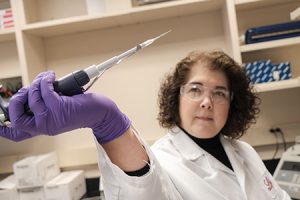Pfizer expanding in cancer with $10.6B deal for Array BioPharma
Array’s stock was already at a record before the deal announcement, following the company’s news last month of positive clinical trial results using Braftovi and Mektovi with Indianapolis-based Eli Lilly and Co.’s Erbitux.




